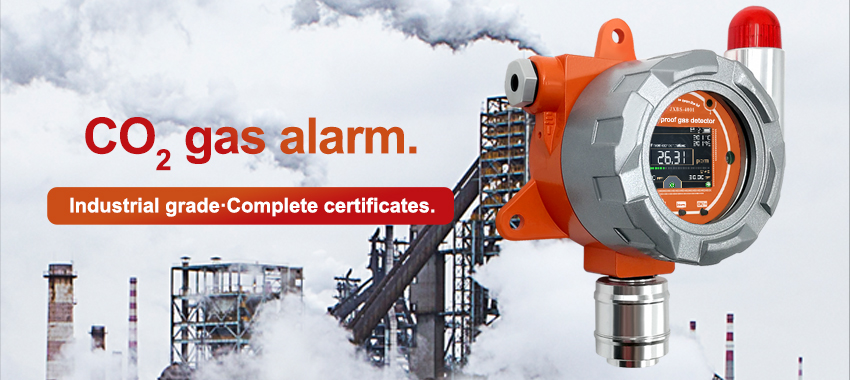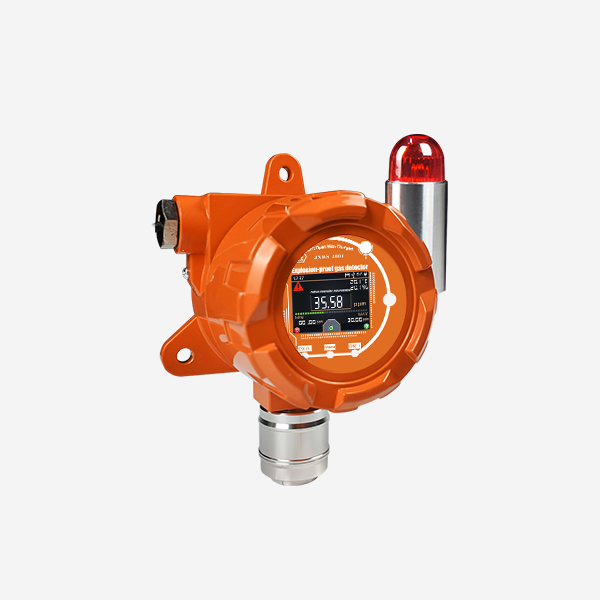Gas detector alarm
A gas detector alarm is a critical safety device that plays a crucial role in protecting lives and property from the potential dangers of gas leaks and hazardous atmospheres. This alarm system actively detects the presence of various gases, such as carbon monoxide (CO), methane (CH4), propane (C3H8), and hydrogen sulfide (H2S), and triggers an audible and visual alarm to alert occupants of the impending danger.

Gas detector alarms play a crucial role in ensuring the safety of workers in various industries where the presence of hazardous gases is a constant concern. However, with numerous options available in the market, choosing the right gas detector alarms can be a daunting task. In this article, we will provide a comprehensive guide to help you in choosing a gas alarm.
Help you make an informed decision
Identify the Hazards:
Before selecting a gas detector alarm, it is essential to identify the specific hazardous gases present in your workplace. Different gases require different sensors for accurate detection. Common gases include carbon monoxide (CO), hydrogen sulfide (H2S), oxygen (O2), methane (CH4), and volatile organic compounds (VOCs).

Understand Sensor Types:
Gas detector alarms come with various sensor types, including catalytic bead, electrochemical, infrared, and photoionization detector (PID). Each sensor type has its strengths and limitations. For example, catalytic bead sensors are suitable for detecting combustible gases, while electrochemical sensors are ideal for toxic gas detection.
Consider Calibration and Maintenance: Regular calibration and maintenance are necessary to ensure the accuracy and reliability of gas detector alarms. Look for devices that offer easy calibration processes, and consider the availability and cost of calibration gases and replacement parts.
Evaluate Alarm Features:

Gas detector alarms come with different alarm features, such as visual and auditory alarms, vibration alerts, adjustable alarm levels, and real-time gas concentration readings. Choose a device with alarms that suit your workplace environment and the specific needs of your team.
Battery Life and Power Options:
Consider the battery life of gas detector alarms, especially if it needs to be worn for extended periods. It is also beneficial to have alternative power options, such as rechargeable batteries or AC power adapters, to ensure uninterrupted operation.
Data Logging and Connectivity: Some gas detector alarms offer data logging capabilities, allowing you to record gas concentrations over time. Additionally, connectivity features like Bluetooth or USB can make it easier to transfer and analyze data directly from the device.
User-Friendliness and Training:
Choose a gas detector alarm that is intuitive and easy to use. It should have a clear display, direct control, and provide adequate training materials.This ensures correct use by all users.
Compliance with Safety Standards :
Ensure that gas detector alarms meets relevant safety standards and certifications, such as ATEX, UL, or CSA, to guarantee its reliability and compliance with industry regulations.
Price and Warranty:
Consider your budget but prioritize quality and reliability over cost. Compare prices from different manufacturers and suppliers, and inquire about warranties or service agreements to protect your investment.
Seek expert advice:
If you are unsure of the best gas detector alarm for you, consult a safety professional, or product supplier.
By carefully considering these factors, you can choose the right gas alarm for your workplace and provide a safety guarantee. Remember, the safety of your employees is Paramount. Investing in a reliable gas detector alarm is key to creating a safe working environment.
